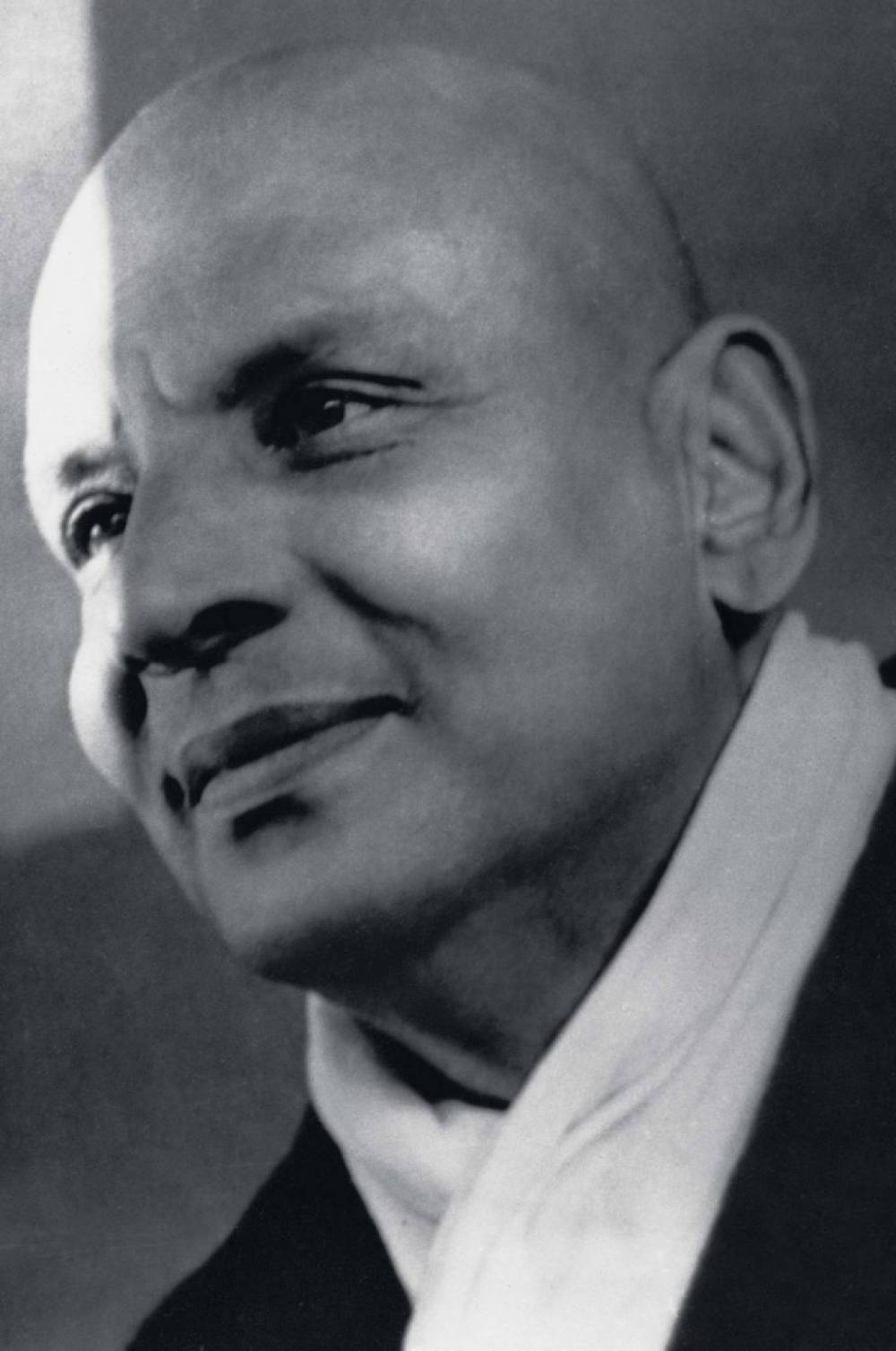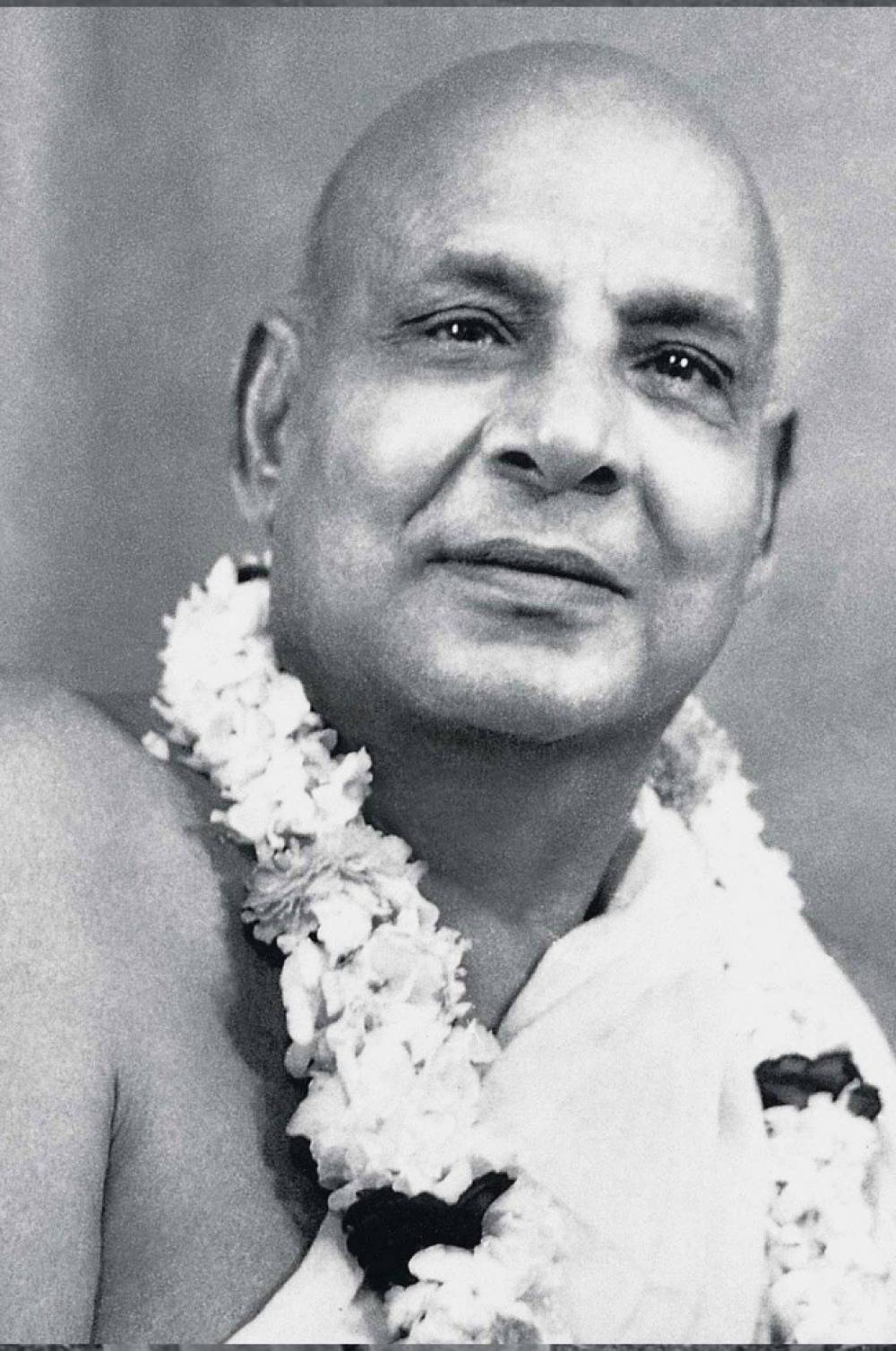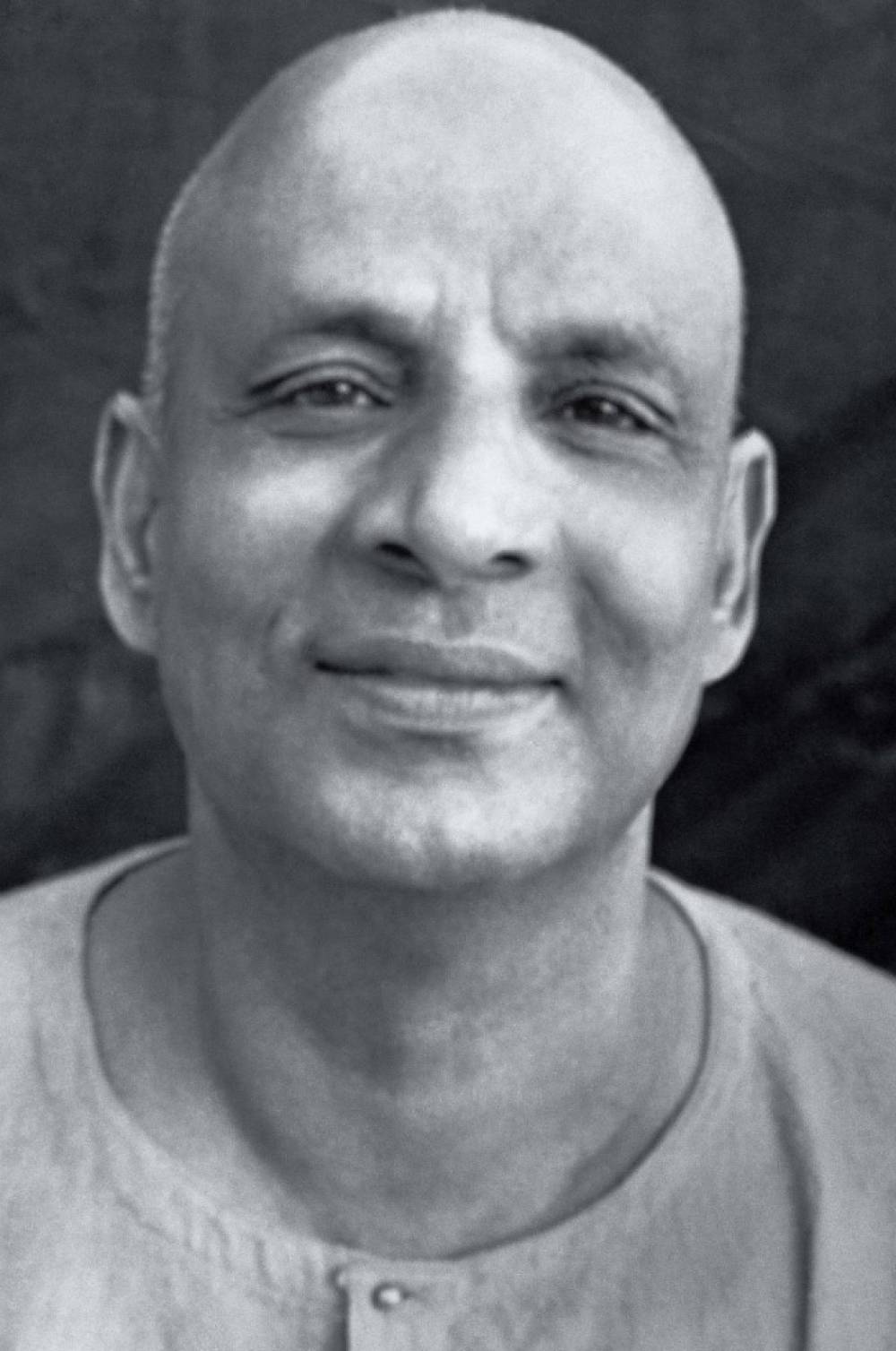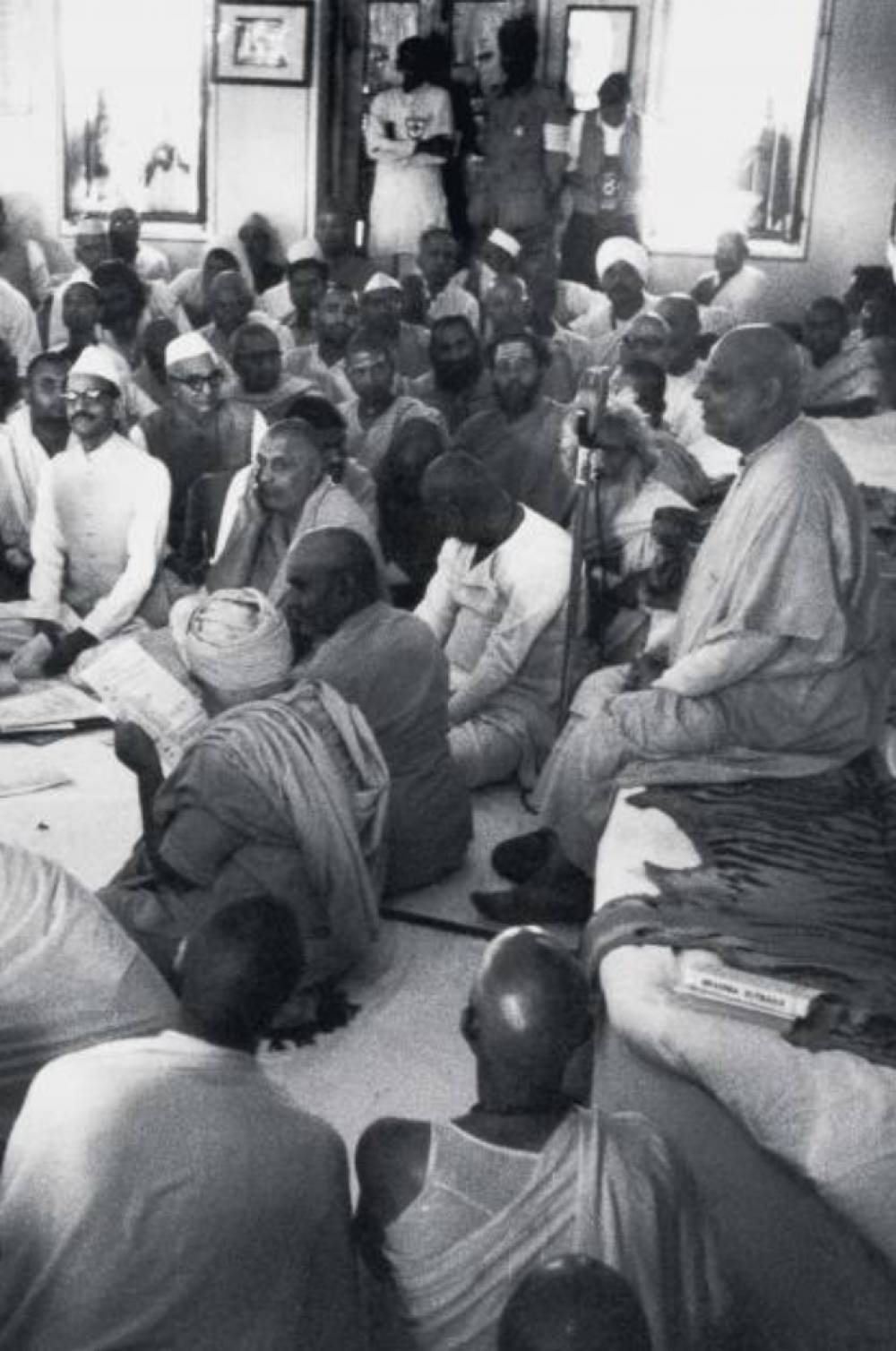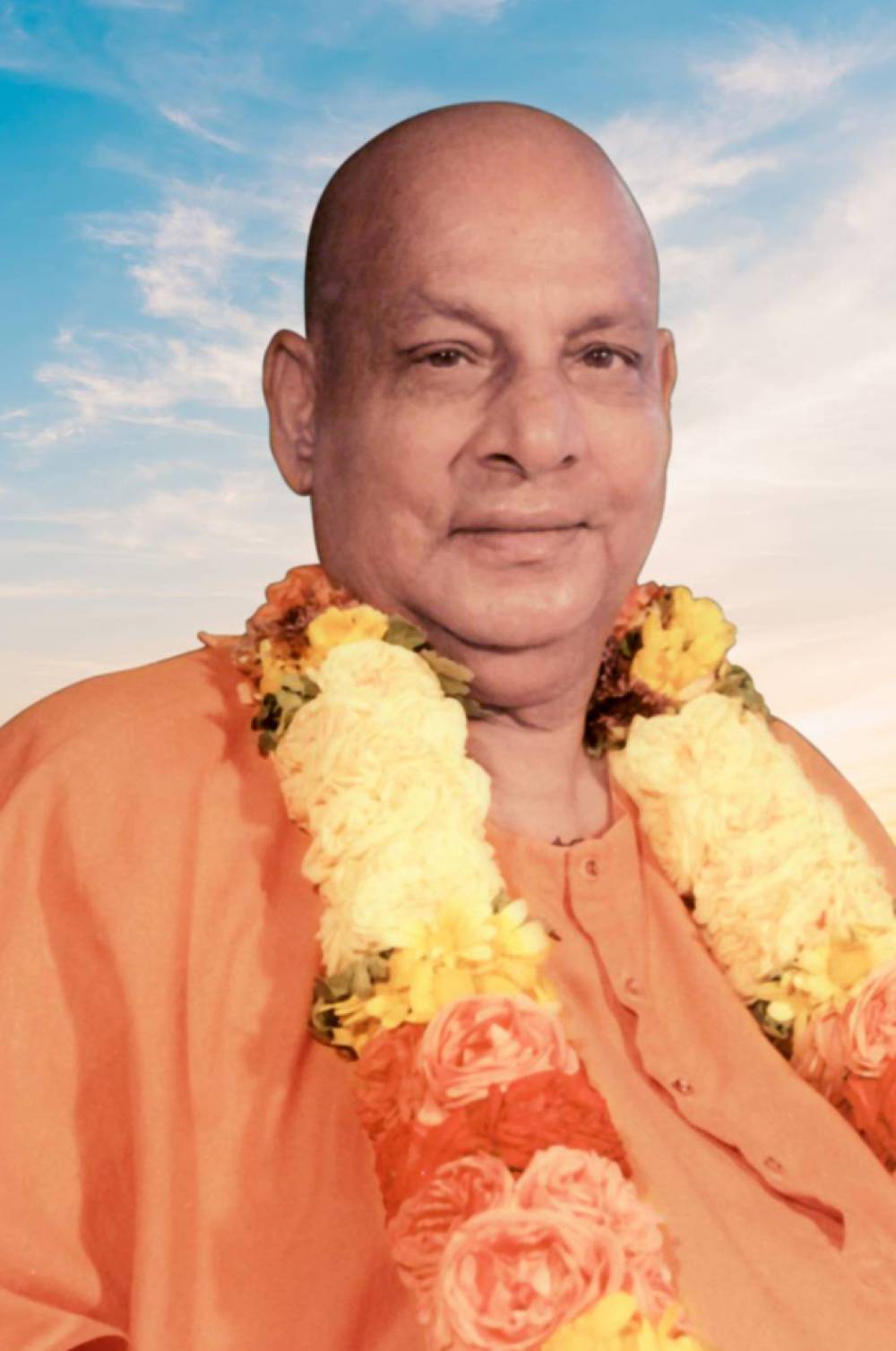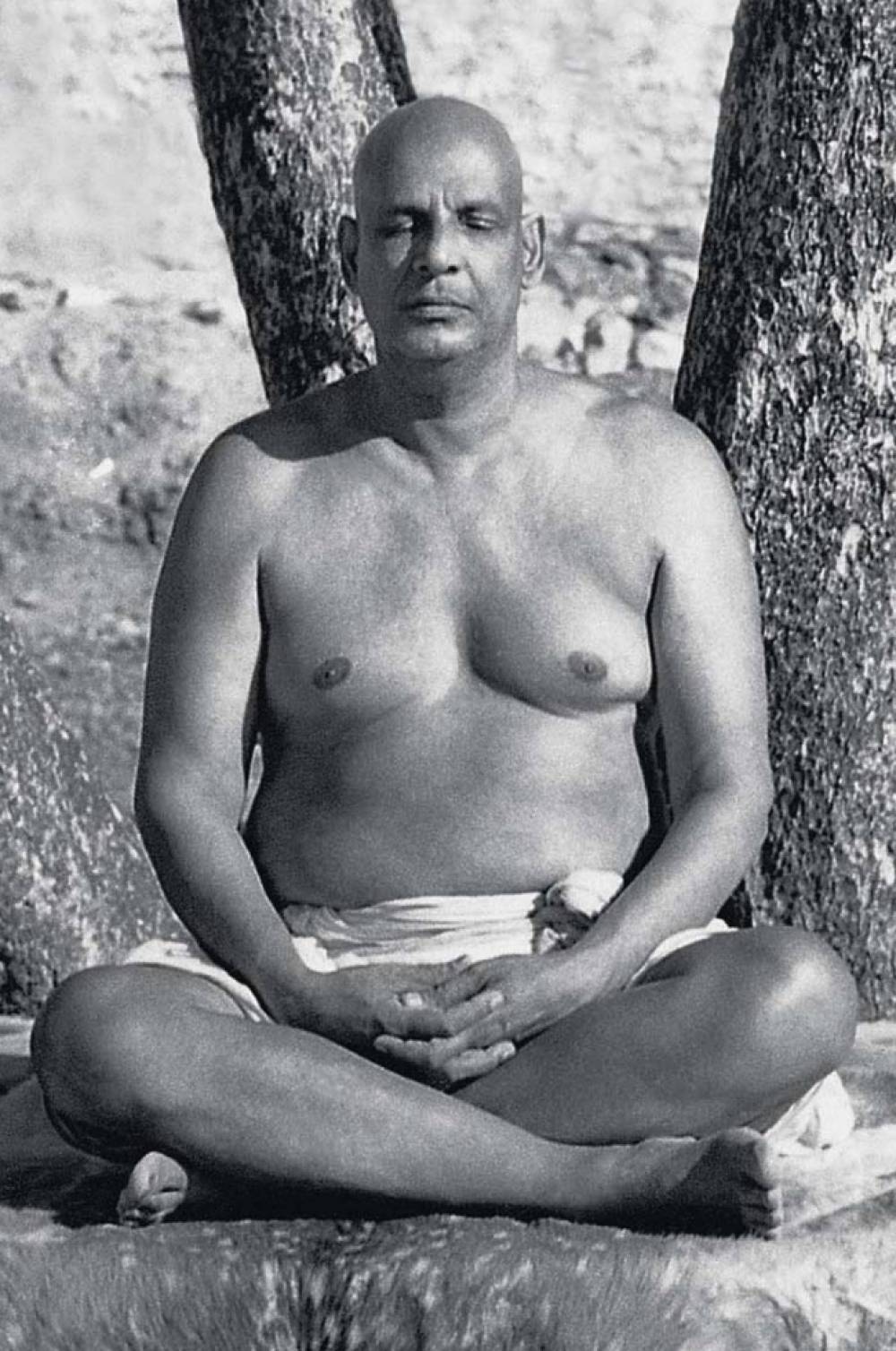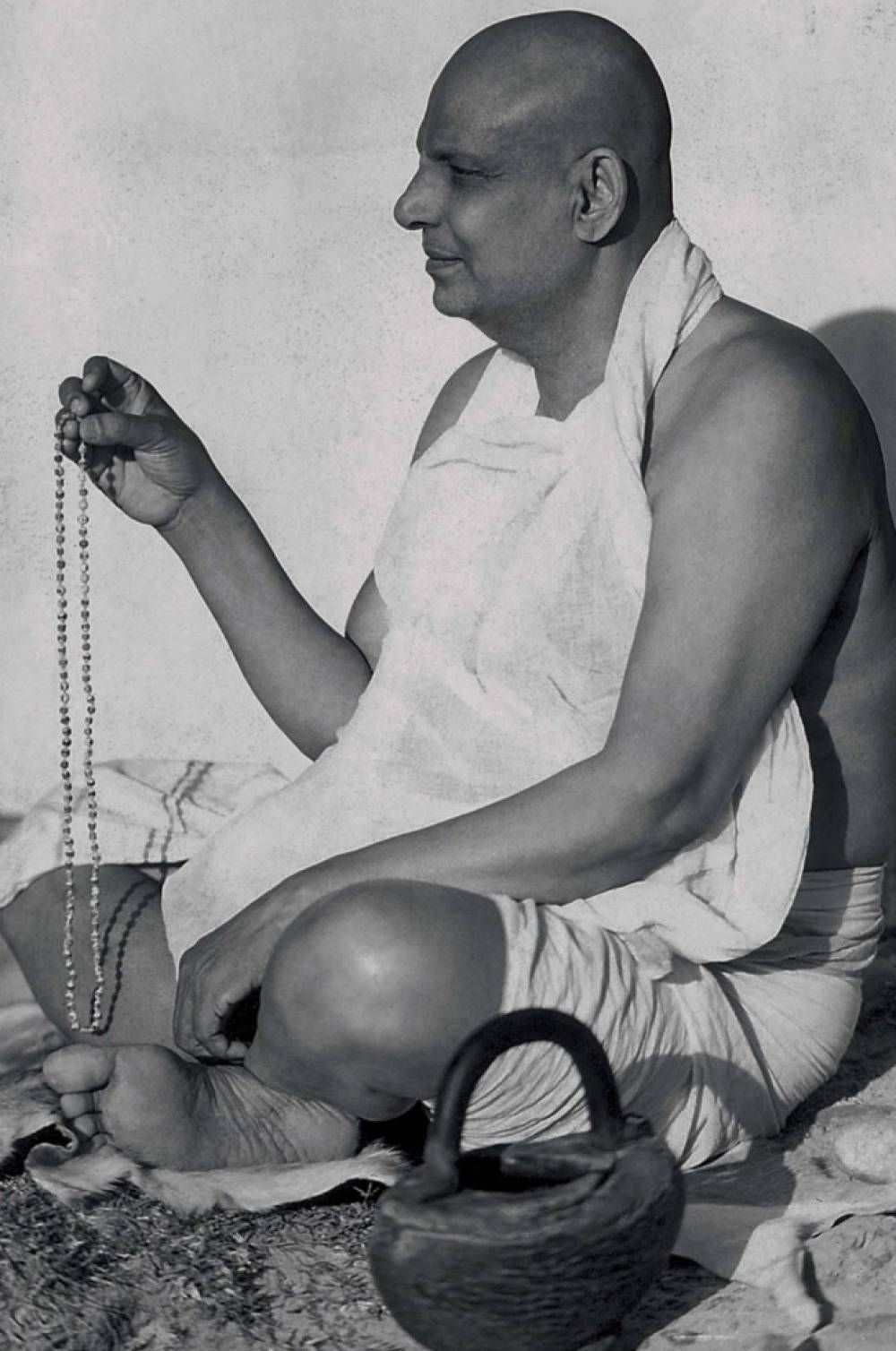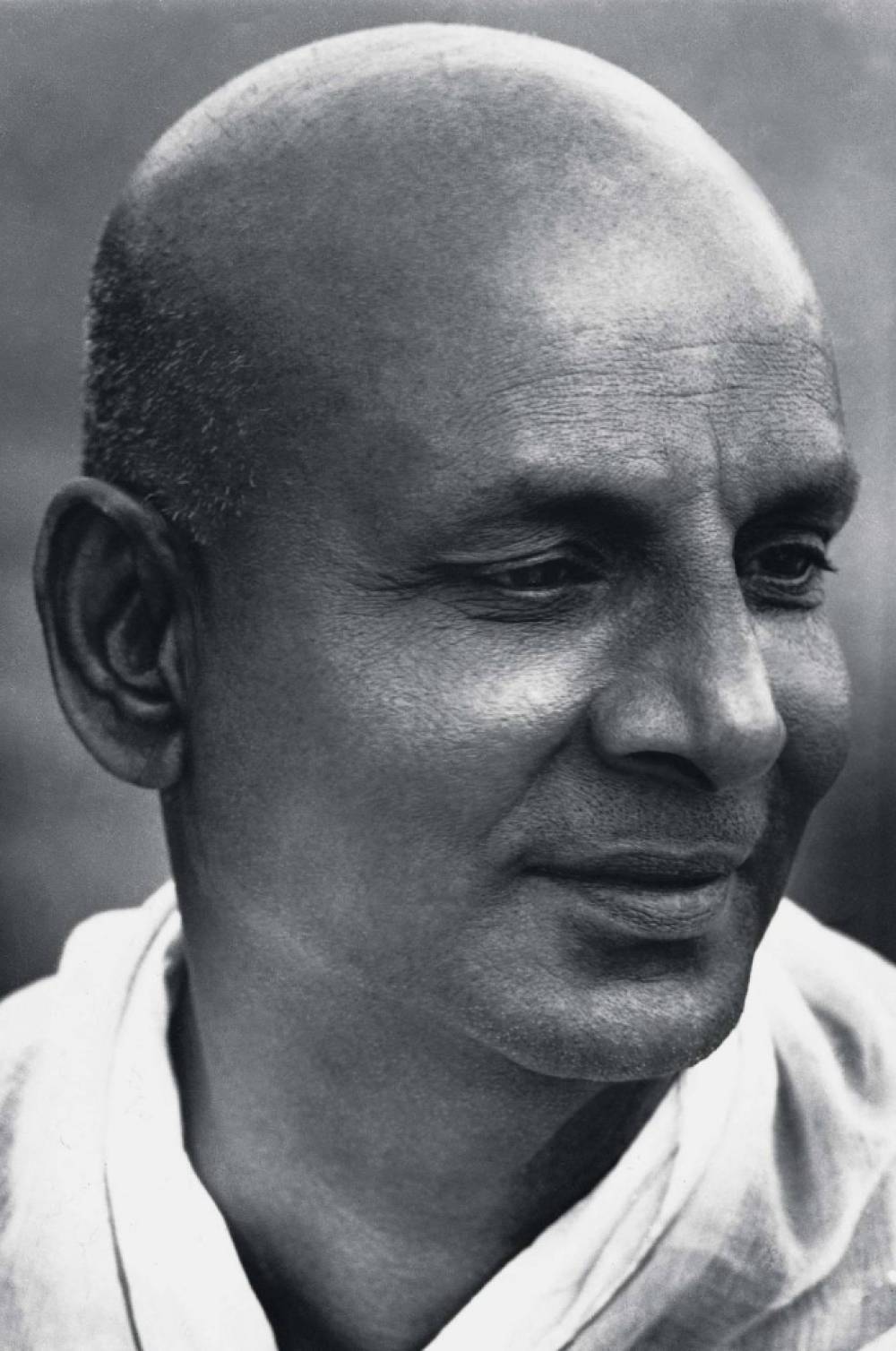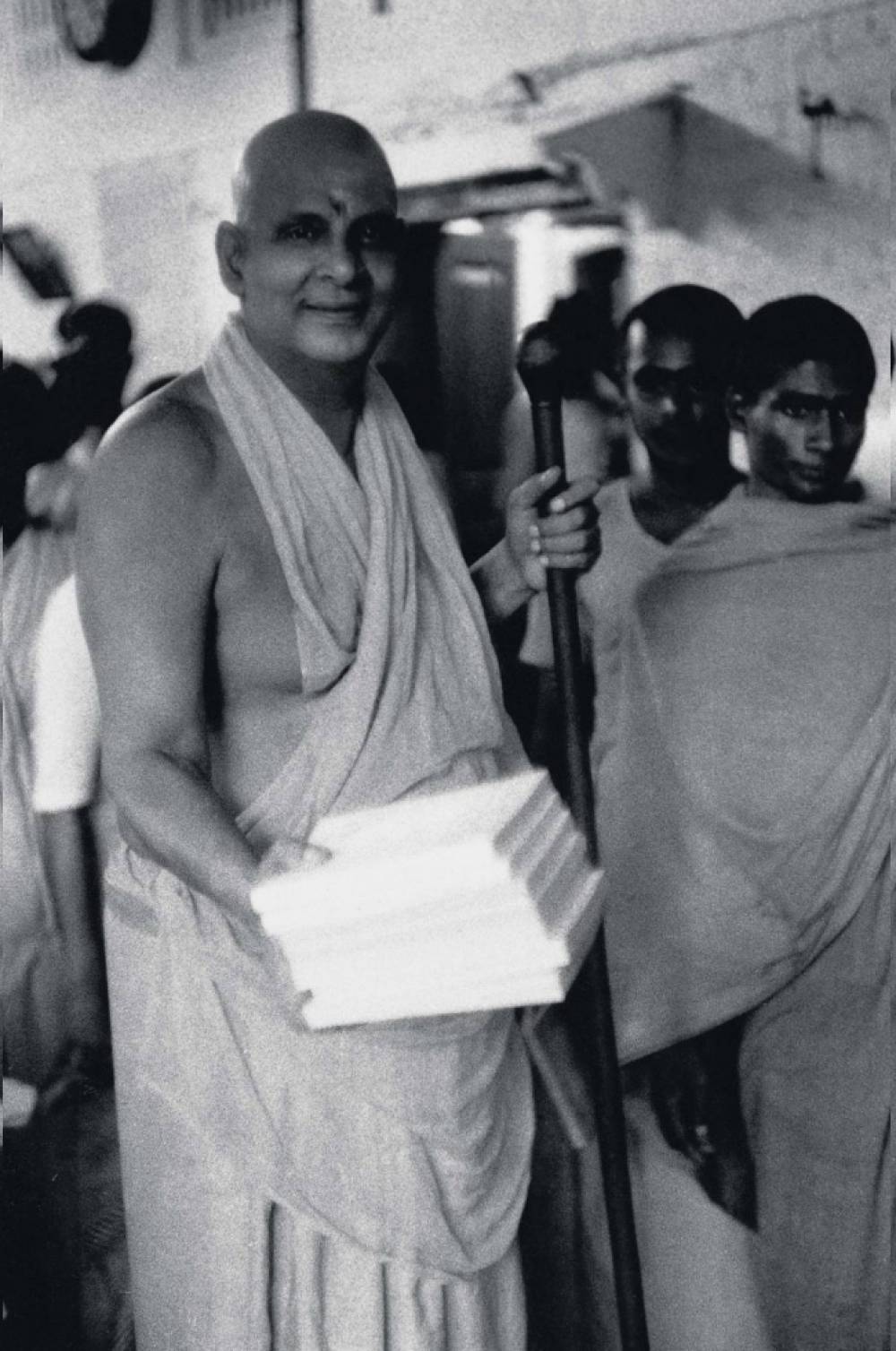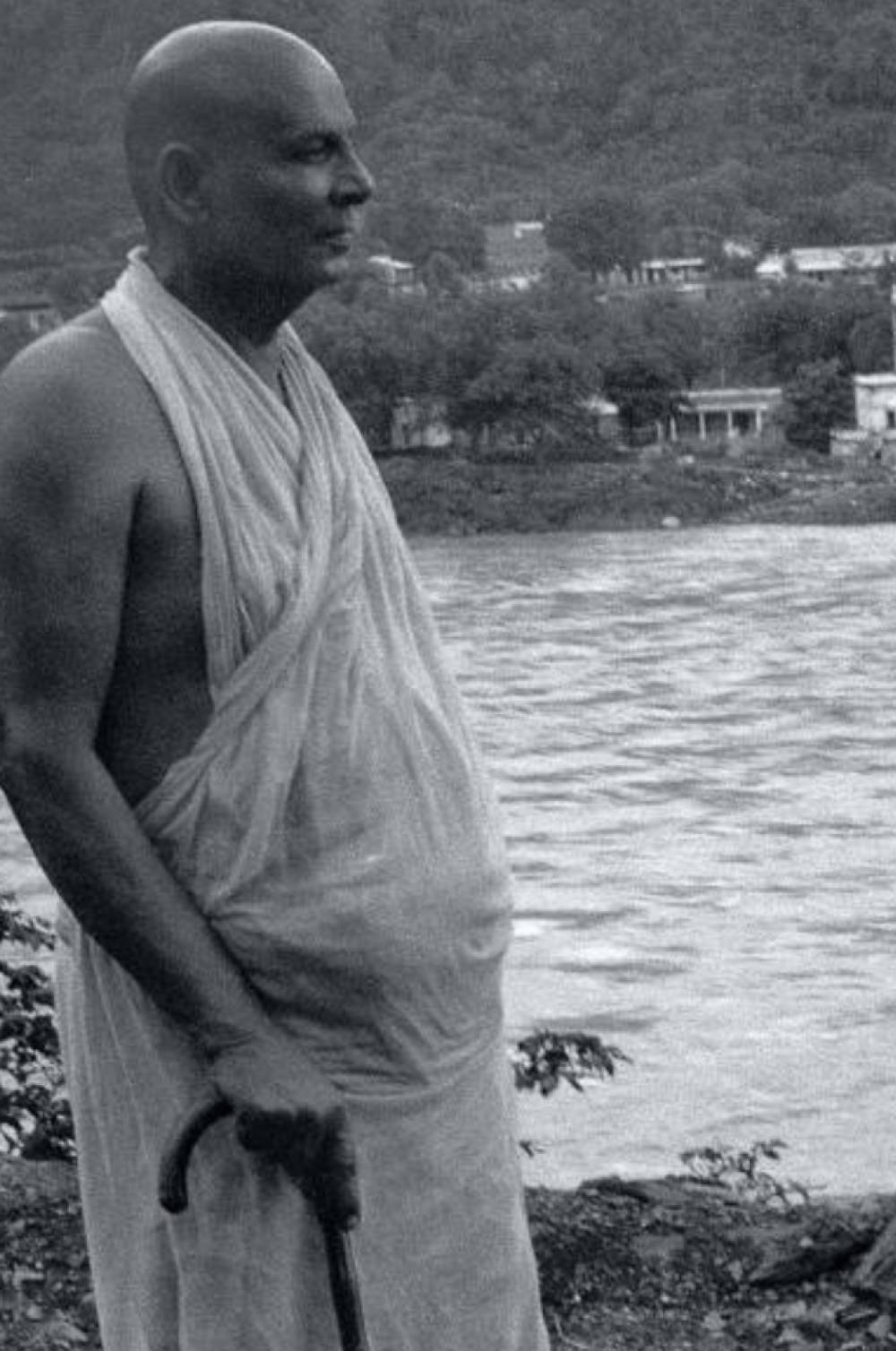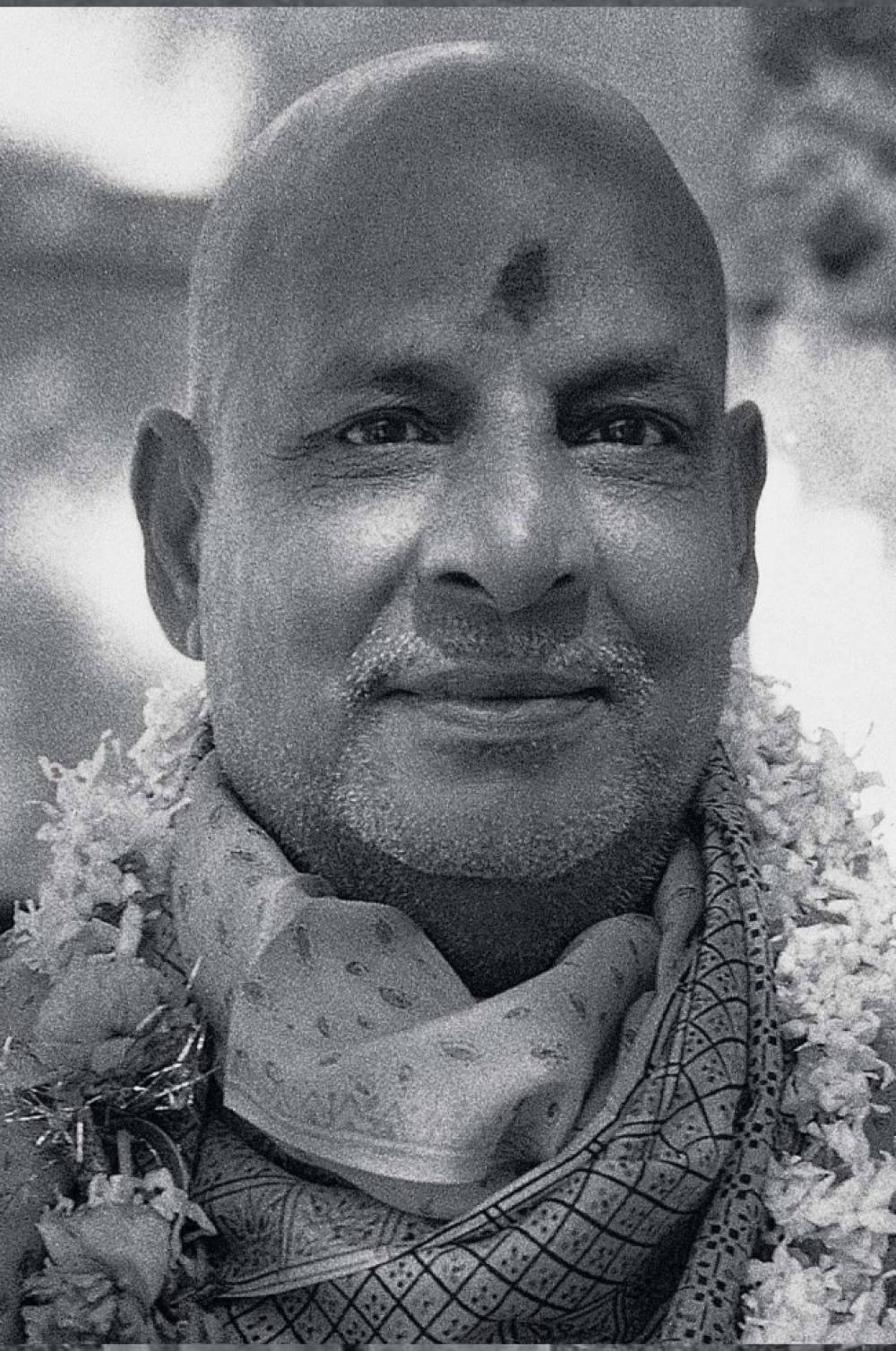|
Yoga is the discipline of the mind, senses and the physical body. Yoga helps in the coordination and control of the subtle forces within the body. Yoga brings in Perfection, Peace and everlasting Happiness. Yoga can help you in your business and in your daily life. You can have calmness of mind at all times by the practice of Yoga. You can have restful sleep. You can have increased energy, vigour, vitality, longevity and a high standard of health. You can turn out efficient work within a short space of time. You can have success in every walk of life. Yoga will infuse in you new strength, confidence and self-reliance. Through Yoga you can have complete mastery over the mind, passions, emotions, impulses, temper, tongue, and so forth. The body and mind will be ever at your beck and call.
God-consciousness or communion with the Lord is the acme of the ethico-religious discipline of Yoga. This is attended by a remarkable sense of freedom and moral elevation on account of the crumbling down of the false, illusory, little 'I'. The Yogi is in possession of all Divine Powers now. He enjoys unalloyed eternal Bliss. Power of endurance is a virtue to be possessed by a Yogi, a Jnani and a Bhakta. Many hardships and privations have to be faced by the aspirant in the successful performance of Yoga. Titiksha develops will-power. That is the reason why Lord Krishna says to Arjuna: "The contacts of matter, O son of Kunti! giving cold and heat, pleasure and pain, they come and go, impermanent, endure them bravely, O Bharata! The man whom these torment not, O chief of men, balanced in pain and pleasure, steadfast, he is fit for immortality."-Bhagavad-Gita: Ch. II-14, 15. Moral excellence or ethical perfection is not, however, the final goal of the Yogi. It is only a means to the attainment of the end of life. Ethical development is more difficult than the attainment of intellectual eminence, because the truth can only be grasped by the Yogi who possesses a pure or untainted heart. The essentials of moral life are straightforwardness, honesty, mercy, humility, respect for life or tender regard for every creature that breathes, absolute unselfishness, truthfulness, celibacy, non-covetousness, absence of vanity and hypocrisy, and cosmic love. The student of Yoga should be abstemious in his diet. He should avoid laziness, ease, habitual languor and excess of sleep. He should observe silence and occasional mild fasts to ensure a good tone to his constitution. He should develop correct habits. He should check all sorts of ambitions and counter-currents of worldly desires by enquiry, thinking and discrimination. He should say unto the deceiving mind: "O mind! I know your tricks. I have got dispassion and discrimination now. Do not wag your tail now. I will snip it off ruthlessly. I have learnt many lessons. It is only ignorance that makes man prefer a transient gain to permanent benefits. I do not want again these sensual enjoyments. They are like vomited matter for me. I have resolved to attain the free, everlasting fruits of Yoga viz., EVERLASTING PEACE, INFINITE BLISS AND SUPREME JOY." Yoga advocates complete detachment from secular interests for the sake of practising uninterrupted meditation. It recommends meditation on the inner Light of the heart or anything that is pleasing to you. It prescribes that one should withdraw oneself from the ordinary affairs of life for the purpose of practising constant meditation. Yoga can also be practised at home by having well-regulated life. A Yogi claims that he can attain extraordinary powers and knowledge by subduing the passions and appetites and by practising Yama, Niyama and Samyama (or the practice of concentration, meditation and Samadhi at one and the same time). Patanjali Maharshi, the author of YOGA-SUTRAS, clearly warns the students that they should not be carried away by the temptations of powers. The gods themselves tempt the unwary Yogi by offering him a position similar to theirs. Students seek more after Siddhis than after Truth and spiritual attainment despite the clear note of warning. Desire for power acts like puffs of air which may blow out the lamp of Yoga that is being carefully tended. Any slackness in feeding it due to carelessness or selfishness for Siddhis will blow out the little spiritual light that the Yogi has kindled after so much struggle and will hurl him down into the deep abyss of ignorance. He cannot rise up again to the original height to which he had ascended in the Hill of Yoga. Temptations are simply waiting like vultures to overwhelm the unwary student. Temptations of the astral, mental and Gandharva worlds are more powerful than the earthly temptations. Success in Yoga is possible only if the aspirant practises profound and constant meditation. He must practise self-restraint at all times, because all of a sudden the senses may become turbulent. That is the reason why Lord Krishna advises Arjuna: "O son of Kunti! The excited senses of even a wise man, though he be striving impetuously, carry away his mind. For the mind, which follows in the wake of the wandering senses, carries away his discrimination, as the wind (carries away) a boat on the waters."-Bhagavad-Gita: Ch. II-60, 67). Very often various sorts of obstacles come in the way of the Yogi. Disappointment, despair, sickness, depression, doubt, indecision, lack of physical and mental energy, slothfulness, unsteadiness, craving for sensual objects, blunder, act as stumbling blocks. He should not be discouraged. Patanjali Maharshi prescribes Eka-Tattva-Abhyasa i.e., practice of concentration on one subject to overcome them. This will give him steadiness and strength. He further advocates the practice of friendship between equals, mercy towards inferiors, complacency towards superiors and indifference towards wicked people. This practice will generate peace of mind or composure and will destroy hatred, jealousy, etc. A new life will dawn in him when he practises these virtues. What is needed is perseverance. It is the key-note of Yoga. The Yogi is amply rewarded, when he gets full control over the mind. He enjoys the highest bliss of Asamprajnata Samadhi. Keep your balance of mind always. This is a very important practice. This is, doubtless, a difficult practice, but you will have to do it at any cost. Then alone you can be really happy. Then and then alone you can enjoy real peace of mind. Keeping up the balance of mind in pleasure and in pain, in heat and in cold, in gain and in loss, in success and in failure, in praise and in censure, in respect and in disrespect is wisdom. This practice is a trying discipline indeed, but it gives inner spiritual strength. He who is able to keep a balanced mind at all times, in all conditions, even under extreme provocation, is a mighty potentate on earth. He must be adored. He is the most wealthy man, though he is clad in rags, though he has nothing to eat. He is the strongest man even if he has a dilapidated physical frame. Worldly people lose their balance of mind even for trifling things. They get irritated and lose their temper soon. Energy is wasted when one loses his temper. An irritable man is a very weak man though he possesses immense physical strength and a fine muscular, well-developed body. Those who want to practise balance of mind should develop discrimination and practise celibacy and meditation. Those who have wasted their semen much get irritated very frequently. Irritability manifests itself as an outburst of temper when any opportunity offers itself. You will have to be very careful. You will have to nip the irritability in its bud. Do not allow it to assume the form of a big wave of anger. Every time you become a victim to a passion of any kind, you make it a little more difficult to resist its next attack; on the contrary, if you succeed in your attempt in subduing it, it will be very easy for you in getting triumph over it next time. This is the immutable Law of Nature. The fit of anger passes away but it leaves a definite impression in the astral body. The man is more and more susceptible to further attacks of irritability. Each outburst of temper augments the capacity for anger and the possibility of being irritated quickly. The astral body responds more readily than before to these unpleasant fits of rage. Man completely loses the power of self-control. In a moment he may do any kind of atrocious crime. He may commit murder or any other atrocious cruelty. He is polluting the thought-world and is injuring all those around him by his vicious vibrations. It behoves, therefore, that every man should surely take great care to avoid these outbursts of anger. He must be careful when he moves and talks with others. The senses are your enemies. They draw you out and disturb your peace of mind. Do not keep company with them. Subdue them. Restrain them. Curb them just as you curb the restive horse. Discipline of the senses gives spiritual strength and peace of mind. The discipline of the senses is not a day's work. It demands continuous and patient practice for a very long time. Control of the senses is really control of the mind. All the ten Indriyas must be controlled. Starve them to death. Do not give them what they want. They will then be slowly thinned out. They will obey your orders implicitly. Worldly-minded persons are mere slaves of their Indriyas, though they are educated, though they possess immense wealth and judicial or executive powers. If you are a slave of meat-eating, you will begin to exercise control over the tongue if you give up meat-eating for six months. You will consciously feel that you have gained a little supremacy over this troublesome Indriya which was of a revolting nature sometime ago. Be cautious, vigilant and circumspect. Watch your mind and Vrittis. Lord Jesus says: "Watch and pray." Watching the mind is introspection. One in a million does this beneficial, soul-elevating practice or discipline. People are immersed in worldliness. They run after money and women. They have no time to think of the Soul or higher spiritual things. The sun dawns, the mind runs in its old, usual, sensual grooves of eating, drinking, amusing and sleeping. The day has passed. In this way the whole life passes away. There is neither moral development nor spiritual progress. The so-called educated, cultured people also have no idea of introspection. They simply develop their intellect, earn some money, hold some rank and position, get some vain and empty titles and honours and pass away from the scene without attaining the Knowledge of the Self or the Goal of life. Is this not really sad? Is this not highly lamentable? He who does introspection daily can find out his own defects and can remove them by suitable methods and have perfect control over the mind. He cannot allow the intruders-lust, anger, greed, delusion and pride-to enter the mental factory. He can cultivate various divine virtues such as mercy, forbearance, purity, courage, etc. Daily self-analysis and self-examination are indispensably requisite. Then only the Yogic student can obviate his defects and can grow rapidly in spirituality. What does a gardener do? He watches the young plants very carefully. He removes the weeds daily. He puts a nice strong fence round them. He waters them daily at the proper time. Then alone they grow beautifully and yield fruits quickly. Even so, the Yogic student should find out his defects through daily self-analysis and then eradicate them through suitable means. If one method fails, he must take recourse to a combined method. If prayer fails, he should take recourse to Satsanga, Pranayama, meditation, dietetic regulation, enquiry, and so on. He should destroy not only the big waves of pride, hypocrisy, lust, anger, etc., that manifest on the surface of the conscious mind, but also their subtle impressions that lurk in the corners of the subconscious mind. Then only he is perfectly safe. These subtle impressions are very dangerous. They lurk themselves like thieves and attack the aspirant, when he is a bit careless, when he slackens a bit his daily spiritual practices, and when he is provoked. If these defects did not manifest even under extreme provocation on several occasions, even when you are not practising daily introspection and self-analysis, you can be rest assured that the subtle impressions also are obliterated. Now you are safe. The practice of introspection and self-analysis demands patience, perseverance, leech-like tenacity, application, iron will, iron determination, subtle intellect, courage, etc. But you will get a fruit of incalculable value. That fruit is Immortality, Supreme Peace and Infinite Bliss. You will have to pay a heavy price for this. Therefore do not grumble when you do daily practice. You should apply your full mind, heart, intellect and soul. Then only rapid success is possible. Every aspirant in the path of Yoga should try to possess a serene mind. An aspirant with a restless mind cannot make an iota of progress in Yoga. The first prerequisite for a Yogic student is serenity of mind. Silent meditation in the morning, renunciation of desires, Sattvic diet, discipline of the senses, observance of Mouna (silence) daily for one hour will pave a long way in the attainment of a settled peace of mind. All vain, habitual thoughts, feelings, cares, anxieties, confused ideas, all sorts of imaginary fears, must be eradicated. Then only you will have a peaceful mind. The foundation of Yoga can be well and truly laid only if the aspirant possesses serenity of mind to a maximum degree. A calm mind only can grasp the truth. A silent mind only can receive the Divine Light. A peaceful mind only will be a proper vessel to hold the spiritual light. The spiritual experiences will be permanent if one possesses a quiet mind. Otherwise they will come and go. As soon as you get up from bed in the morning, do some prayer, Japa and meditation from 4 to 6. Then make a firm determination: "I will observe celibacy today. I will speak the truth today. I will not hurt others' feelings today. I will not lose my temper today." Watch the mind. Have an iron will. Be resolute. You will surely succeed that day. Then you can continue the vow for the whole week. You will gain strength gradually. Your will-force will develop. Then continue the vow for the whole month. Even if you commit some mistakes in the beginning you need not be unnecessarily alarmed. Mistakes are your best teachers. You will not commit the same mistakes again. If you are sincere and earnest, the Divine Grace will descend upon your head. The Lord will give you strength to face difficulties and troubles. He who has controlled his mind is really happy and free. Physical freedom is no freedom at all. If a man is easily carried away by his emotions and impulses, if he is under the grip of moods, cravings and passions, how can he be really happy? He is like a rudderless boat. He is tossed about hither and thither like a piece of straw in a river. He laughs for five minutes and weeps for five hours. What can wife, son, friends, money, fame, titles, powers, do for him when he is swayed by the impulses of the mind? A true hero is he who has controlled his mind. There is a proverb: "He who has controlled his mind has controlled the world." True victory is victory over the mind. Then only one can enjoy real freedom. Through rigorous discipline and self-imposed restrictions, you will have to eradicate all your desires, thoughts, impulses, cravings, etc. Then only you can free yourself from the thraldom of the mind. You should not give leniency to the mind. The mind is a mischievous imp. You should curb it by drastic measures. Then only you can become a perfect Yogi. Money cannot give you freedom. Freedom is not a commodity that can be purchased in the Crawford Market! It is a rare hidden treasure guarded by a five-hooded serpent. Unless you kill the serpent, you cannot get the treasure. That treasure is the Spiritual Wealth. The serpent is the mind. The five hoods are the five senses through which the mind hisses. Rajasic mind always wants new things. It wants variety. It gets disgusted with monotony. It wants change of place, change of food, and change of everything, in short. But a Yogic student should train the mind to stick to one thing. He should not be afraid of monotony. He should have asinine patience, adamantine will and untiring perseverance. Then only he can succeed in Yoga. He who wants something new always, is unfit for Yoga. You should stick to one place, one teacher, one method, one system of Yoga. Then only rapid progress is possible. You should have real thirst for God-realisation. Then all obstacles will be obviated. Then only you can stick to the path of Yoga. Mere emotional bubbling for the time being out of sheer curiosity or for getting powers and Siddhis cannot bring any tangible results. When you have made some progress in meditation, you cannot be carried away by surging emotions. Occasional irritability and undesirable cravings of various sorts may manifest, but you will have strength to control or repress them. You will not yield to them. Gradually these cravings will be completely burnt by the fire of meditation. If you are careless, if you are irregular in your Yogic practices, if your dispassion wanes, if you give up your Sadhana for some days on account of laziness, the adverse forces will take you away from the true path of Yoga. You will be stranded. It will be very difficult for you to rise up again to the original pinnacle. Therefore be very regular in your practices. The restless mind must be rendered quiet by reducing your wants, by destroying useless earthly desires. Have one strong desire for liberation. Then you can open your mind to the higher spiritual influences. The Divine Light will slowly descend. You can actually feel the inner change and spiritual uplift. Gradually the personal consciousness will merge itself into the Cosmic Consciousness, the individual will will merge into the Divine Will or Cosmic Will. This is the state of Samadhi or Superconscious state. Man has become transmuted into God now. After many ages he has gone back to his original home or abode of Immortality and eternal Bliss. You will have to squeeze out all Rajas from the mind. Rajas is passion. All worldly ambitions are the products of Rajas. Ambition renders the mind restless. If the ambition is not realised, the mind is filled with depression and anxieties. The ambitious man has no peace of mind. He worries himself: "Will I succeed in my attempt? Even if I succeed, will I be able to have the same influence and power which Mr. So and so possesses?" Ambition is a great obstacle in Yoga. You must try to get peace of mind first. Then only the superstructure of Yoga can be built up quickly. The Divine Light can only descend in a peaceful mind. If you have a peaceful mind, you will get flashes of higher vision. A gloomy man radiates unpleasant and morbid vibrations all around. There is nothing more infectious than depression. Never come out of your room, if you are depressed, because you will spread the contagion to your friends and neighbours. Depression eats the very core of your being. It havocs like a canker. It is a deadly plague. It may be due to some disappointment or failure, severe dyspepsia or heated debates, wrong thinking or wrong feeling, etc. Separate yourself from this negative feeling and identify yourself with the Supreme Purusha. Have an inner life. No external influences can affect you. You will be invulnerable. You will be proof against depression or any dark antagonistic force. Drive the feeling of depression at once by enquiry, singing the Name of the Lord, prayer, chanting of OM, Pranayama, a brisk walk in the open air, thinking of the opposite viz., the feeling of joy. Try to be happy in all states and radiate joy to all around you. This world is nothing but the materialisation of the thought-forms of Hiranyagarbha or God. You have got the waves of heat and light and electricity in science. There are also thought-waves in Yoga. Thought has tremendous power. Everybody is exercising the power of thought unconsciously to some extent. If you have a comprehensive understanding of the working of the thought-vibrations, if you know the technique of controlling thoughts, if you know the method of transmitting beneficial thoughts to others at a distance by forming clear-cut, well-defined, powerful thought-images, you can use this thought-power a thousandfold more effectively. Thought moves. Thought works wonders. Thought heals. Thought has weight, shape, size and colour. A wrong thought binds; a right thought liberates. Therefore think rightly and attain freedom. It is not thought alone that determines an action. There are some intelligent people who think nicely on the pros and cons of a thing but when the time comes they are led astray by temptations. They do wrong actions and repent bitterly. It is the feeling that really goads a man to do action. Some psychologists lay much stress on imagination and say that it is imagination that really determines an action. They bring the following illustrations in support of their statements:- Suppose a long plank 1 foot broad is placed on two turrets each 20 feet high. If you begin to walk over this plank you imagine that you will fall down and so you actually fall down; whereas you are able to walk nicely on the same plank when it is placed on the ground. Again, suppose you go on a bicycle along a narrow lane. There is a big stone on the way. You imagine that you will hit the cycle against the stone and so you actually run the cycle against the stone on account of your false imagination. Some other psychologists say that it is the will that determines an action and that will can do everything. To them will is Soul-force. Vedantins also are of this opinion. Man is a complex social animal with a multiplicity of interests. He is a biological organism and so he is definitely characterised by the possession of certain physiological functions such as circulation of blood, digestion, respiration, excretion, etc. He is also definitely characterised by the possession of certain psychological functions such as thinking, perception, memory, imagination, etc. He sees, thinks, tastes, smells and feels. Philosophically speaking he is the image of God, nay, he is Brahman Himself. He lost his divine glory by tasting the fruit of the "Forbidden Tree." He can regain his lost divinity by mental discipline and the practice of Yoga. Why do you weep, my child? Take away the bandage from your eyes and see. Lift up the veil of Maya. You are surrounded by Truth and Truth alone. Open your eyes and see clearly now. Wherever you see, there is the All-Full Light and Bliss only. The cataract of ignorance has blurred your vision. Have the cataract extracted immediately. Put on a new pair of glasses by developing the inner eye of wisdom through regular meditation.
|
Categories
Tag Cloud

